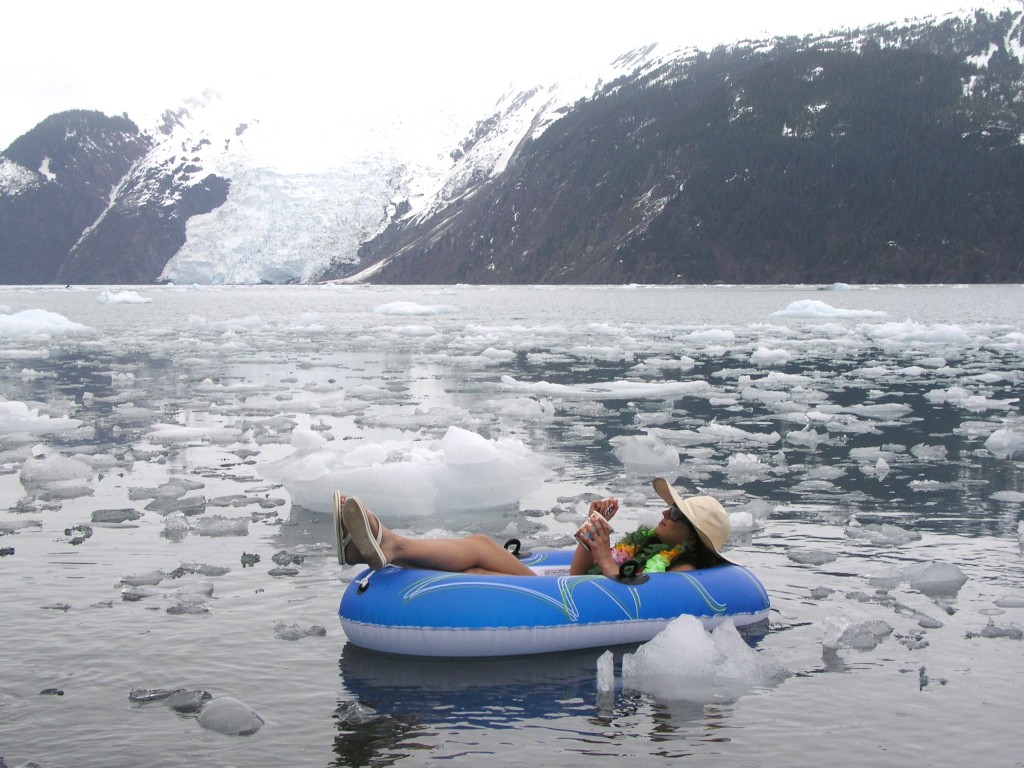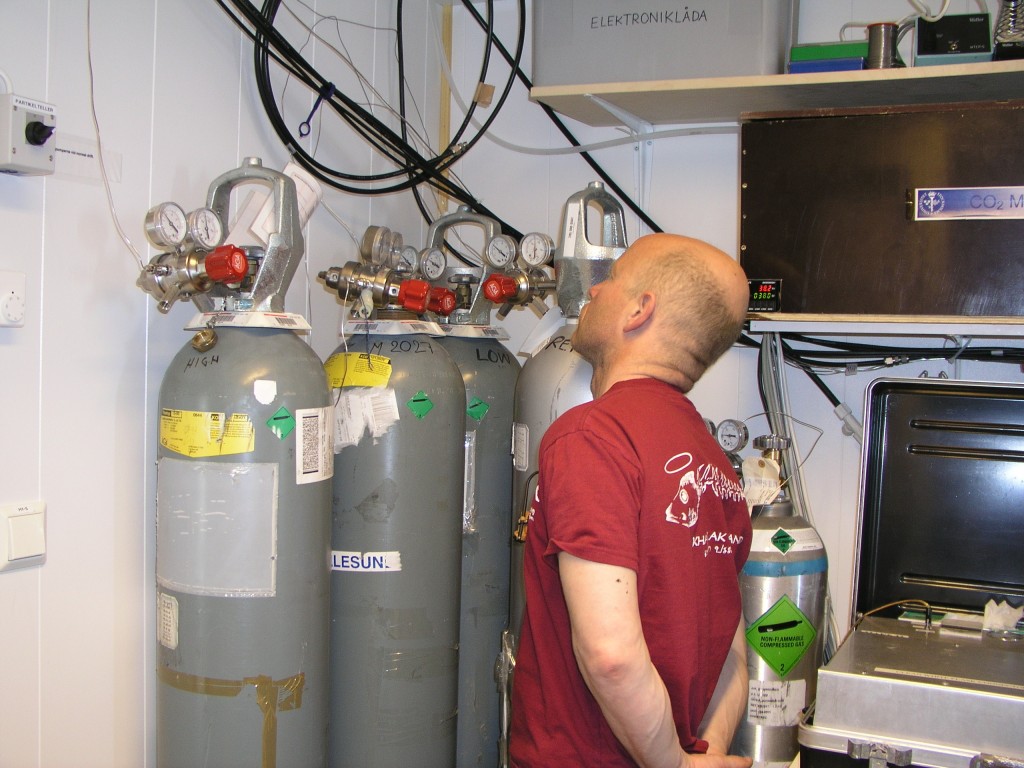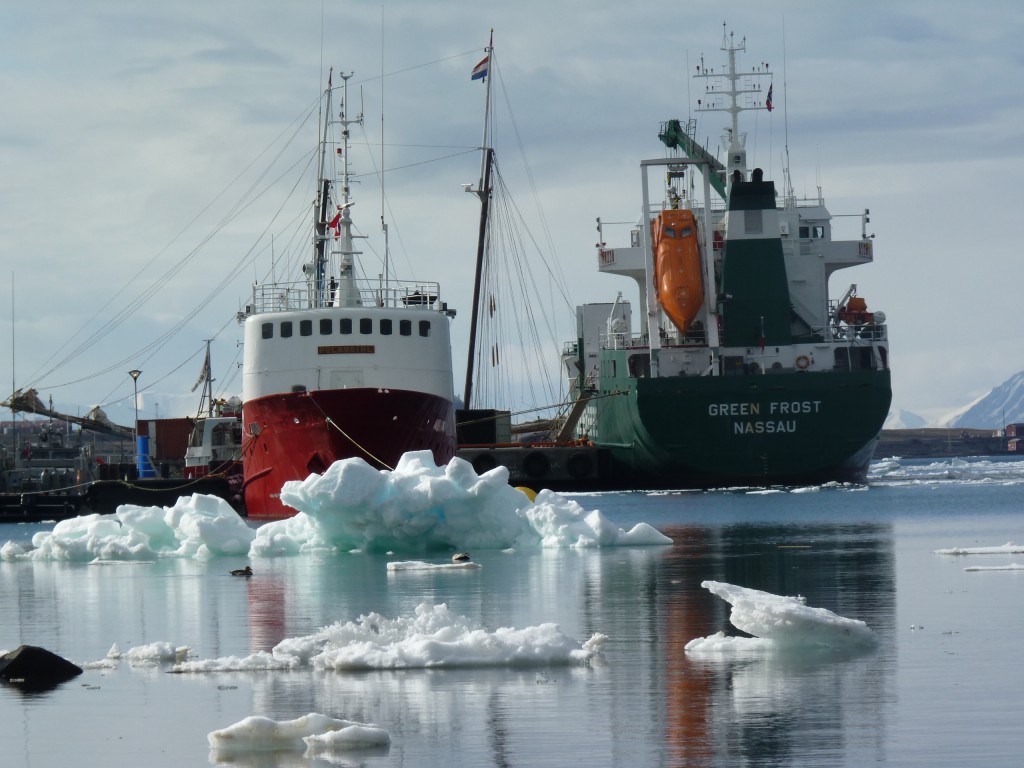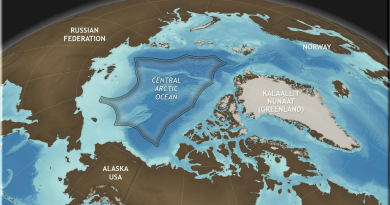Ice-Blog: Hottest year – scary, but not for Arctic shippers from China?
 As I sit in my Bonn office between thunderstorms in a week where we reached a record 36 degrees Celsius here, I am not surprised to read that the World Meteorological Organization (WMO) sees 2016 on track to be the hottest year ever.
As I sit in my Bonn office between thunderstorms in a week where we reached a record 36 degrees Celsius here, I am not surprised to read that the World Meteorological Organization (WMO) sees 2016 on track to be the hottest year ever.
The WMO bases its conclusions on two separate reports from NOAA and NASA GISS.
Global temperatures have already shattered previous records for the first six months of the year. And, no, it is not just El Nino. The WMO says June 2016 was not only the 14thconsecutive month of record heat, but also the 378th consecutive month with temperatures above the twentieth century average. That means we haven’t been below the average since 1984.

The extraordinary becomes the norm
In the last blog post I quoted an article about the extraordinary years becoming the normal. Here we go again.
“The El Nino event, which turned up the Earth’s thermostat, has now disappeared. Climate change, caused by heat-trapping greenhouse gases, will not. This means we face more heatwaves, more extreme rainfall and potential for higher impact tropical cyclones”, said WMO Secretary-Gerneal Petteri Taalas in a press release.
The WMO also notes the corresponding rise in CO2 concentrations:
“Carbon dioxide concentrations have passed the symbolic milestone of 400 parts per million in the atmosphere so far this year. CO2 levels vary according to the season, but the underlying trend is upwards. They showed a surprising increase for the first half of 2016, rising in June 2016 to nearly 407 ppm, 4ppm greater than June 2015”, the WMO writes.

Melting away…
So what does all this mean for our beloved Arctic?
Of course it has been experiencing the record warming even more than the rest of the planet. The WMO mentions a very early onset of the annual melting of the Greenland ice sheet and Arctic sea ice, and exceptionally low snow cover in the northern hemisphere.
“The extent of Arctic sea ice at the peak of the summer melt season now typically covers 40 percent less area than it did in the late 1970s and early 1980s. Arctic sea ice extent in September, the seasonal low point in the annual cycle, has been declining at a rate of 13.4 percent per decade”, says WMO.
Chinese go full-speed-ahead

Now a lot of people are very concerned about that. But presumably the Chinese shipping giant COSCO is not amongst them. The company has announced that it will be sending three cargo ships through the Arctic Ocean this summer, since global warming is making the route more viable. It will be using the Northeast Passage, which goes north of Russia. As the news agency AFP puts it, “China sees the opportunity to reshape global trade flows”, as this route can shorten journey times between Asia and Europe considerably.
The Yong Sheng merchant ship left the Chinese port Tianjin last Saturday, bound for the UK, carrying a “mixed cargo” through the Northeast Passage. It seems the ship has used the route twice in the past three years. This time, two more COSCO ships, the Tian Xi and the Xiang Yun Kou are also scheduled to navigate the passage next month.
AFP quotes the company as saying it aims to “normalize” services on the route. So, once again, the extraordinary is becoming normal? This worries me for several reasons. First, it is an indicator that this industry giant is convinced climate warming is here to stay, and illustrates that there are those who are happy to profit from it. Secondly, as discussed many times here on the Ice Blog and in my articles for DW, shipping in Arctic waters is still a very high-risk business for the environment and, of course, the humans on board the ships.
Room for dispute
Earlier this year, China’s Maritime Safety Administration published a Chinese language guide including nautical charts and descriptions of ice conditions for the other Arctic route, the Northwest Passage, which runs north of Canada. That begs the question: is this part of Canada’s waters, as Ottawa claims, or international waters?
Clearly, economic and strategic interest in the Arctic is spreading well beyond the Arctic countries as the frozen north warms.
Without wanting to be alarmist, I have to mention a comment by the French Defence Minister Jean-Yves Le Drian, who proposed in June that European navies should coordinate patrols in Asian waters to reinforce the maritime order based on the UN Convention on the Law of the Sea, against the background of the dispute between China and others in the South China Sea. He warned that if the laws of the sea are not respected in that region, they could also be challenged elsewhere, for instance in the Arctic.
Worrying times.
Pressure to implement Paris

Back to the WMO. Secretary-General Petteri Tallas stresses that the record-breaking warming underlines the urgent need to approve and implement the Paris Agreement and speed up the shift to renewable energy.
But so far, remember, there have definitely NOT been enough countries ratifying to bring the agreement into effect. UN Secretary-General Ban Ki-moon has invited world leaders to a special event in September to deposit their instruments of ratification or accession to the Paris Agreement. Perhaps the heatwaves, storms, extreme rainfall and other “abnormal but becoming normal” events in their respective countries will persuade these politicians (especially in the countries responsible for the majority of emissions) that time is running out if we want to keep to that two-degree Celsius target (let alone the 1.5). The average temperature in the first six months of this year was already 1.3 degrees warmer than pre-industrial times. Some experts are already convinced we need to start drawing greenhouse gases out of the atmosphere and store them if we are to avert climate catastrophe. A daunting prospect, to say the least.

Related stories from around the North:
Canada: First half of 2016 breaks heat records, Arctic sea ice reaches lowest levels: NASA, Radio Canada International
Finland: Climate change brings new insect arrivals to Finland, Yle News
Greenland: New model predicts flow of Greenland’s glaciers, Alaska Dispatch News
Norway: John Kerry to visit Arctic Norway to witness climate impacts, The Independent Barents Observer
Russia: Extreme heat on the Russian tundra, The Independent Barents Observer
Sweden: How will global warming affect the average Swede?, Radio Sweden
United States: NASA projects tracking changes in Alaska’s glaciers and Arctic atmosphere, Alaska Dispatch News



